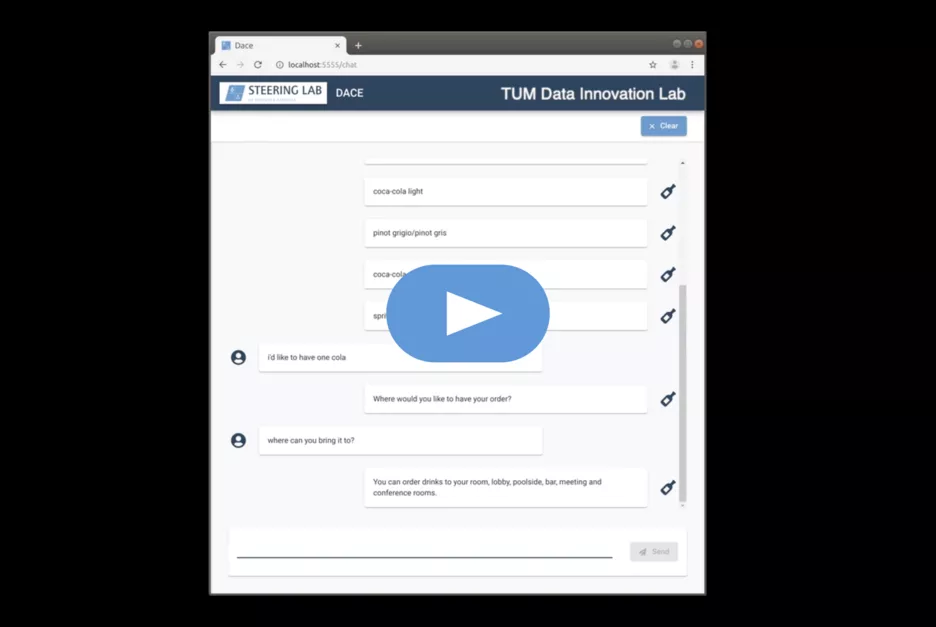Development of an Artificial Conversational Entity (ACE) for continuous learning and adaptation to user’s preferences and behavior.
- Sponsored by: Steering Lab by Horváth & Partners
- Project Lead: Dr. Ricardo Acevedo Cabra
- Scientific Lead: Dr. Andrei Belitski, M.Sc. Olena Schüssler
- Co-Mentor: PhD candidate Laure Vuaille
- Term: Winter semester 2018
- Results: The results of this project are explained in detail in the final documentation, presentation and ind the video below.

Many current challenging problems in Machine Learning and AI are reflected in the conversation between human and machine. A lot of progress has been done recently in this particular area of application and it represents a hot topic in the continuous research for human-like interaction to better understand and act upon requests of a person. On the business side we are looking at a fast growing demand for algorithmic assistants that are in need of customizing for a large variety of domains.
In order to be able to produce human-like interaction and provide reliable assistance to people the key areas of improvement are: Understanding of human intention based on semantic analysis of textual input Optimizing the machine to provide the best response/question in terms of maximal information gain Efficiently generating textual output to serve the human counterpart Learn and integrate knowledge from previous interactions.
The major goal of this project is to develop an ACE framework for a specific business domain. ACE shall be able to communicate with people that produce certain requests, thereby answer their needs and demands, command and delegate certain actions as most importantly learn from past interactions to optimize future conversations and actions. The communication between human and ACE shall be conducted by means of auditory interaction. Algorithms: Machine Learning (advanced natural language processing (NLP) methods, generative models, classification, deep learning: especially CNNs and GANs). Data: Description of the customer domain. Freely available data resources, domain specific data as well as generated test data. Tools: Python (preferred) or R.
